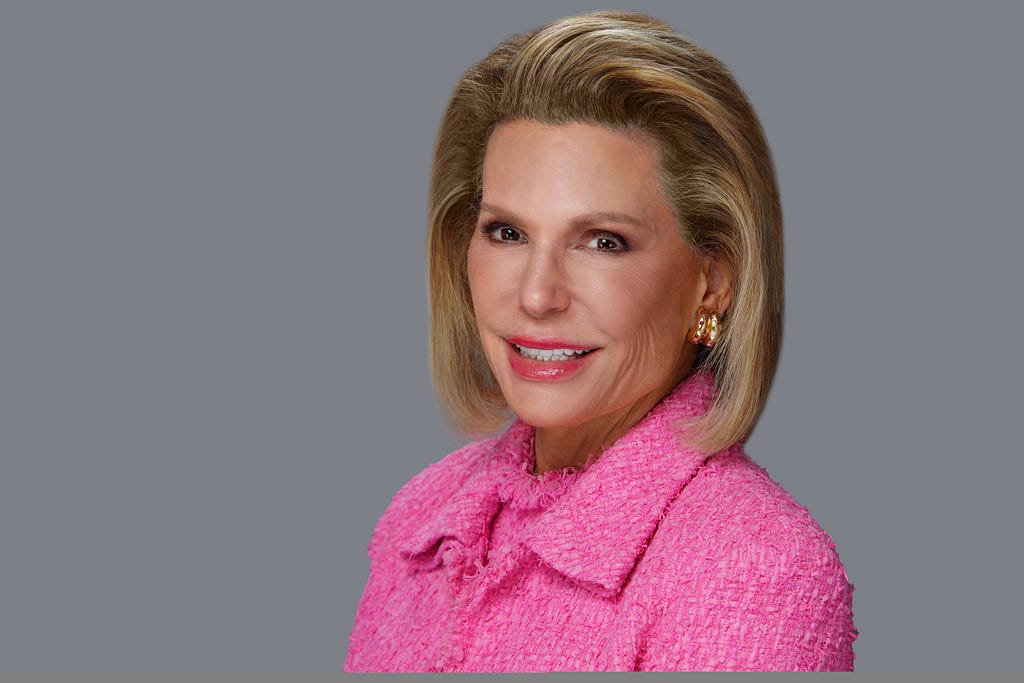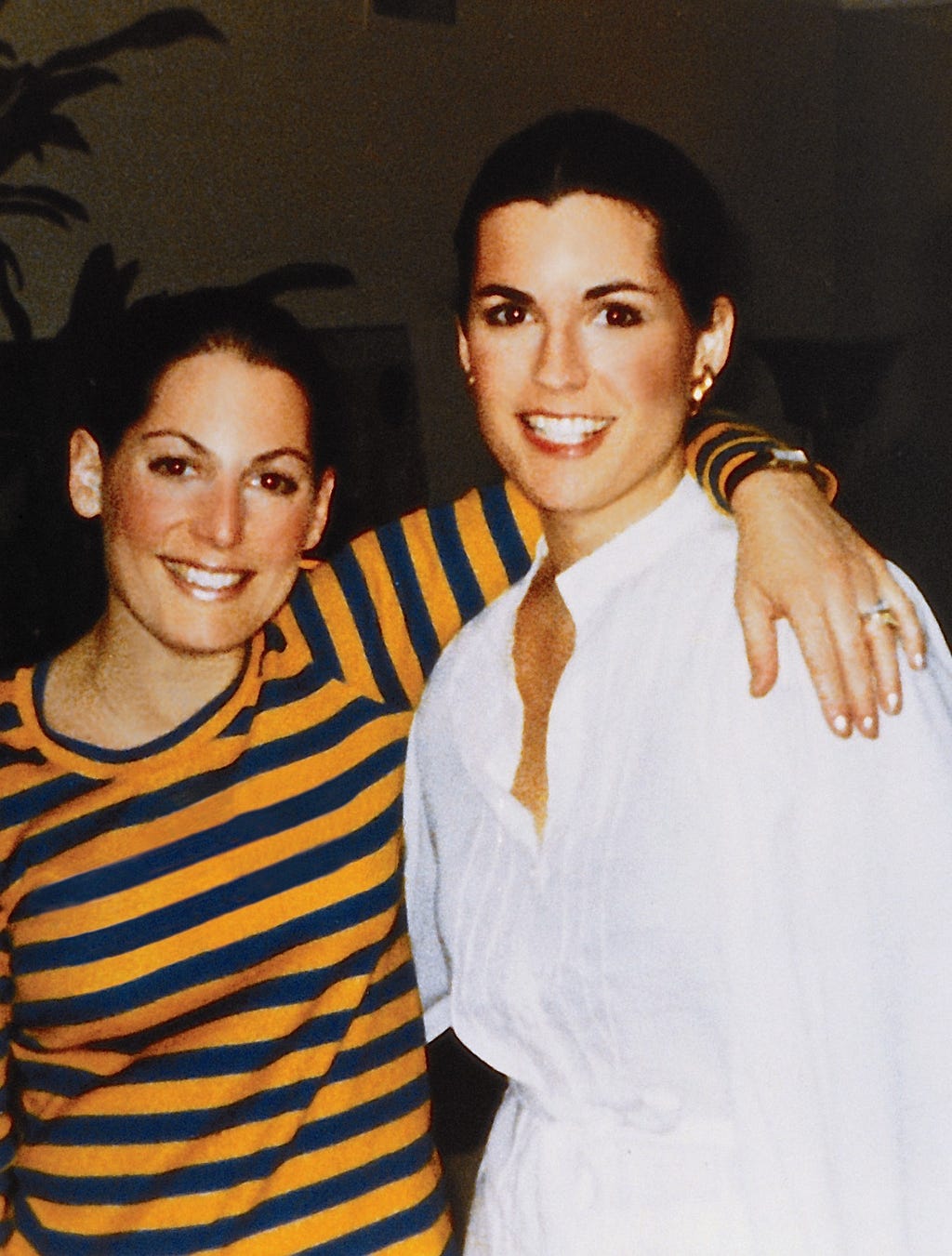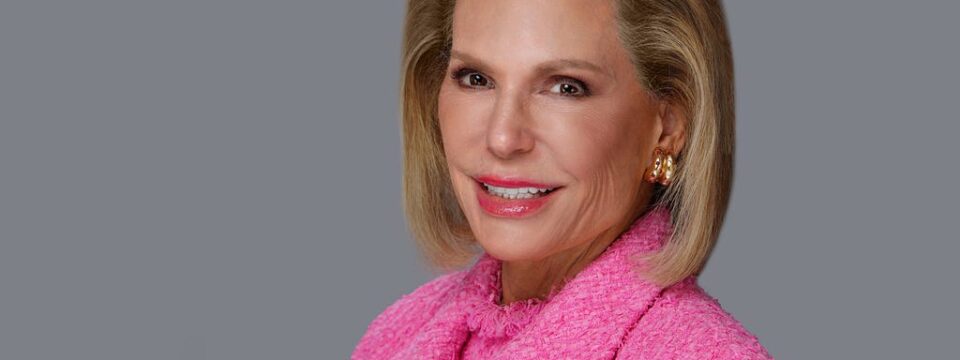
No good deed goes unpunished. When I started Susan G. Komen in the early 80’s, talking about breast cancer was much more challenging than I ever imagined. There was a lot of hesitation to discuss it in the beginning, but that just led me to become more vocal in support of the promises I made to my sister.
As part of my series about “individuals and organizations making an important social impact”, I had the pleasure of interviewing Ambassador Nancy G. Brinker.
Nancy G. Brinker, a three-time Ambassador and New York Times best-selling author, is regarded as the leader of the global breast cancer movement. Brinker founded the Susan G. Komen Foundation and is Founder of Promise Fund, based in West Palm Beach, Florida. She is former U.S. Ambassador to the Republic of Hungary and 2009 recipient of the Presidential Medal of Freedom for her work in bringing global awareness to the breast cancer movement. She also serves as a Goodwill Ambassador for Cancer Control for the United Nations’ World Health Organization.
Thank you so much for joining us in this interview series! Can you tell us a story about what brought you to this specific career path?
My sister Suzy was diagnosed with breast cancer at age 33. Before her passing, she entrusted me with two promises: find a cure for breast cancer and ensure all women have access to the care they need. Those promises became my life’s work.
In 1982, a small team and I founded the Susan G. Komen Foundation in Suzy’s memory. In my 40-plus years with Susan G. Komen, I watched my sister’s name become a worldwide symbol of hope. We raised nearly $3 billion for breast cancer research and transformed how society talks about this disease.
Yet, I saw that our work wasn’t done.
After many years spent in Washington, D.C. and overseas during my career, I decided to retire in Palm Beach, Florida. One day, two of my closest friends, Julie Fisher Cummings and Laurie Silvers, placed a startling statistic in my mailbox. It showed that upwards of 100,000 women in my backyard had no access to primary care and the poverty levels were on the rise. It was in that moment I knew I had to rise up and do something to help our community. So, in 2018, we founded Promise Fund, and I began the next chapter in fulfilling my promise to my sister.
It has been said that our mistakes can be our greatest teachers. Can you share a story about a mistake you made when you were first starting? Can you tell us what lesson you learned from that?
When I started Susan G. Komen, I thought that since my sister died from breast cancer everyone understood it. The first time I gave a speech to a large group, I was surprised by the reaction from the audience — apparently, it was a ‘mistake’ to mention it. At the time in the early 80’s, ‘breast’ and ‘breast cancer’ were words simply not used in public. It was that moment that the ‘mistake’ made my life’s mission that much more vital.
Can you describe how you or your organization is making a significant social impact?
Promise Fund’s mission is to ensure that women in South Florida who either don’t have health insurance or who are underinsured are able to gain access to breast and cervical cancer screening. There are so many barriers underserved women face when it comes to getting screened — from financial challenges, to transportation, or simply not being aware of its importance. Our goal is to break down those barriers and help as many women as we can get the care they need. To date, Promise Fund has helped over 10,000 women in our community, and we’re continuing to expand our outreach programs to more and more areas. When we help one woman, we help her entire family, and that’s what motivates us every single day.
Can you tell us a story about a particular individual who was impacted or helped by your cause?
We have more than 10,000 stories of women who have benefitted from Promise Fund’s mission to provide no-cost screenings. And while it is incredibly meaningful to have helped one person get screenings, diagnostics and care, that multiplies exponentially when we hear stories of how helping that one person helped a whole family, and how the whole family came together with an entire community — all in support of a unified vision — to help keep each other healthy and cared for. There are millions of stories yet to be told, and we are honored to be leading the charge in this area.
Are there three things the community/society/politicians can do to help you address the root of the problem you are trying to solve?
- Address the health insurance crisis. People must have access to potentially life-saving testing and diagnostics, and if needed, treatment, if we want to solve this problem.
- Listen to your constituents. Ask them what they need to make their lives better, then create policies to help them do just that. Our focus is access to screenings, but this point is valid for every aspect of our lives.
- When something works — fund it so we can replicate it throughout the country. Our patient-focused navigation program and partnering with FWHC’s WORKS. Screenings WORK. Let’s make sure all women and men have access to these incredible programs and services.
How do you define “Leadership”? Can you explain what you mean or give an example?
It’s simple — practice what you preach. Make sure your belief system is in line with your vision and your goals. Be clear and be the example.

What are your “5 things I wish someone told me when I first started” and why. Please share a story or example for each.
1 . No good deed goes unpunished. When I started Susan G. Komen in the early 80’s, talking about breast cancer was much more challenging than I ever imagined. There was a lot of hesitation to discuss it in the beginning, but that just led me to become more vocal in support of the promises I made to my sister.
2 . Learn all that you possibly can about your purpose. The more you know, the more impact you’re able to make. You can’t fake passion or knowledge, so choose your path, then sink your teeth into it with everything you’ve got.
3 . No means no, except when it comes to fundraising. If I had accepted no, I would not have raised $3 billion for cancer research. You’re going to get no’s, sure, but you must keep trying and work even harder to find those who will say yes.
4 . To achieve the outcome you desire, it will likely take longer than you can imagine. I grew up during the time of the polio outbreak. There was a vaccine, and we got rid of it. I thought taking on breast cancer would be similar, but this disease can be so different in each person…it’s one of the most common and destructive cancers that exists today. We simply cannot stop trying to fight this disease with every tool in our arsenal.
5 . You can’t judge a book by its cover. Sometimes those with the least, are the ones who help you the most. Don’t be afraid to ask for help. From everyone. People can surprise you — often in the most wonderful ways.
You are a person of enormous influence. If you could inspire a movement that would bring the most amount of good to the most amount of people, what would that be? You never know what your idea can trigger. 🙂
My inspiration is my sister, Suzy. It was her battle with the disease — and my promise to help her fight it — that led me to create a movement to raise awareness and find a cure for breast cancer. That movement was launched 40 years ago, and I am still as invested as I was on day one to continue doing what I set out to do.
We have created a model that works at Promise Fund, and my mission now is to expand it. With the support of our federal, state and local governments, community partners, and private citizens who want to join our mission, we can do it.
Can you please give us your favorite “Life Lesson Quote”? Can you share how that was relevant to you in your life?
You’ll never regret giving back to your community, your family, and your country. If you serve a need, nothing makes you happier. This was something that came from my parents. They instilled the value of service in me at a very young age.
Is there a person in the world, or in the US with whom you would like to have a private breakfast or lunch with, and why? He or she might just see this, especially if we tag them. 🙂
There are a lot of people that I would want to talk to, though some are not with us anymore. Those that come to mind are Marie Curie for her early development of radiation technology, Martin Luther King for his ability to create movements, Stephen Hawkins who was severely disabled, yet used everything he could to make an incredible life. For the living, maybe Warren Buffet. He has provided financial insight to so many yet remains so humble. Mark Cuban was my neighbor when I lived in Texas, though I never got to meet him. His work in making pharmaceuticals affordable might be a good conversation and a possible benefit to Promise Fund.
How can our readers further follow your work online?
Anyone interested in our work can learn more at thepromisefund.org and follow us on socials @thepromisefund.
This was very meaningful, thank you so much. We wish you only continued success in your great work!
Thank YOU for allowing us to share our mission with your readers!
Social Impact Heroes: Why & How Ambassador Nancy G Brinker Is Helping To Change Our World was originally published in Authority Magazine on Medium, where people are continuing the conversation by highlighting and responding to this story.
